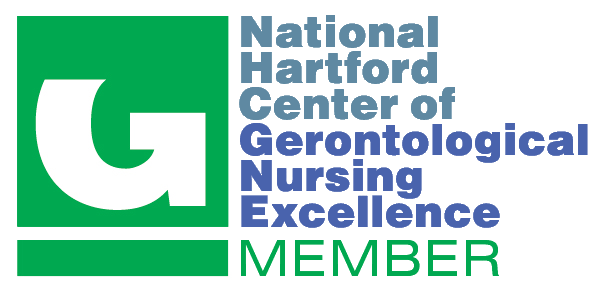Pediatric Nurse Practitioner - Primary Care
Frequently Asked Questions
- What is the role of the Pediatric Nurse Practitioner in Primary Care (PNPPC)?
- Do I have to be a nurse to enter the specialty?
- How many students are accepted into this specialty each year?
- Do I need RN work experience?
- Does the school accept transfer credit?
- I have an MSN degree, does the school have a post-master’s option?
- Can I work full-time and be a full-time student?
- Can I take this specialty via the modified distance learning format?
- What is the modified distance learning format?
- Can I take this specialty part-time?
- What housing options are there for students participating in the modified distance format?
- What is the specialty portion of the curriculum like?
- How many times do I need to visit campus?
- What are the clinical requirements for the specialty?
- How do you match me with clinical preceptors?
- Is travel required as part of my clinical placements?
- What will my credentials and certifications be?
- What is the VUSN pass rate for the certification exams?
- Will I earn my nursing license?
- Will I be able to get a job upon graduation?
- Can I earn a DNP degree?
What is the role of the Pediatric Nurse Practitioner in Primary Care (PNPPC)?
The Pediatric Nurse Practitioner in Primary Care (PNPPC) serves healthy and ill children from birth to 21 years of age within a primary care setting. The PNPPC has a broad perspective of advanced concepts of child and adolescent primary care health care. An immersion clinical experience with an expert preceptor in primary care settings is a pivotal component of the academic specialty. All nursing practices, including prescriptive practice, are regulated by state laws with licensing and scope of practice varying by state. Prescriptive authority for the Pediatric Nurse Practitioner in Primary Care requires graduate courses in in pharmacology, pathophysiology and physical health assessment for prescriptive practice. To learn about the specific laws and regulatory codes for prescriptive practice in your area, contact your state's Board of Nursing.
Do I have to be a nurse to enter the specialty?
No. You can enter this specialty as a BSN or MSN or if you have a bachelor’s degree or higher in a field other than nursing. If you have a bachelor’s degree or higher in a field other than nursing, you can complete a one year full-time baccalaureate equivalent program (PreSpecialty Year), progress to and then progress to the Pediatric Nurse Practitioner Primary Care specialty. If you have a BSN, you enter directly into the specialty course work. All students, regardless of entry type, graduate with an MSN or post-master’s certificate.
How many students are accepted into this specialty each year?
We encourage you to apply to the specialty that meets your career interest rather than focus on the number of spaces available. We strongly recommended that you complete your application by the October 15th early action date to have a greater probability of being admitted. The number of students offered admission can vary each year based on many factors. Typically, we admit from 40 to 45 students into this specialty each year.
Do I need RN work experience?
No. You can enter the specialty without RN work experience.
Does the school accept transfer credit?
Matriculated students can transfer up to six semester credits of equivalent graduate level coursework from another accredited university to be applied toward the MSN. You must complete this petition and return, along with the course syllabus, to Sara Donahoe . Courses completed elsewhere must have been taken within the last five years. The decision is based on equivalent content (for required courses), credit allotment, and satisfactory completion of the courses.
I have an MSN degree, does the school have a post-master’s option?
Yes. There is a Post-Master’s Certificate in Pediatric Nurse Practitioner - Primary Care that is available to students who already possess an advanced nursing degree. We recommend you consider the Doctor of Nursing Practice (DNP) program and complete the post-master’s certificate as part of your DNP program of studies.
Can I work full-time and go to school full-time?
We strongly recommend that students do not attempt full-time school and full-time work. The few students who have successfully completed full-time school and work used flex time or accrued compensatory time to continue to work full-time. Some have used a Baylor plan (weekend shifts).
Can I take this specialty via the modified distance learning format?
This specialty is only offered via the modified distance learning format, so RNs do not need to give up employment or relocate to Nashville. If you do not have a prior nursing background, you must first complete your PreSpecialty Year on campus in Nashville before progressing to the specialty portion of your education which is taught via a modified distance learning format.
What is the modified distance learning format?
Modified distance learning specifically means that you will do a portion of your course work online via taped lectures and web conferencing to integrate the material. A portion of your work requires on-campus learning in blocks of time (including weekends), followed by seminar and online discussions. Where possible, you can do your clinical practicum experience in your home area. You will be in continuous contact with your professors throughout the program and in between sessions.
Can I take this specialty part-time?
Yes, however you are required to follow a pre-determined program of studies. Length of time to complete the entire program varies depending on your background prior to VUSN enrollment. Our admissions staff are happy to walk you through your specific situation. (part-time curriculum plans)
What housing options are there for students participating in the modified distance format?
Our Admissions Office has a listing of hotels near the VUSN campus and many students choose to share hotel rooms to lower costs. Some students stay with local classmates.
What is the specialty portion of the curriculum like?
All full-time students, those living in the middle Tennessee area and those living outside of the middle Tennessee area, attend “block classes” on the Vanderbilt School of Nursing campus. There are eight blocks of classes over a one-year period. These block classes are approximately five day periods, usually from Wednesday through Saturday or Sunday. Students must also attend an orientation at the beginning of the specialty and a final session at the end of the specialty. Block dates are determined early for the entire academic year allowing students plenty of time for adequate work/travel planning. You will be in continuous contact with your professors through the specialty and in between sessions.
How many times do I need to visit campus?
Students meet for “block” classes four times in the fall, three times in the spring, and once in the summer.
What are the clinical requirements for this specialty?
There are 650 clinical hours required.
How do you match me with clinical preceptors?
The key to a student’s success in the distance format is a clinical placement with a qualified preceptor who is supporting and willing to mentor the student. We view clinical placements as a required and integral part of your education. Faculty work diligently to match you with appropriate preceptors so you can learn from clinical mentors and start applying your new skills and knowledge. We make every reasonable effort to accommodate a student’s placement request. Your specialty director will provide more information to assist you.
Is travel required as part of my clinical placements?
Travel is often a requirement of the specialty, as we strive to give the student a vast array of clinical experiences to enrich the student experience (block schedule).
What will my credentials and certifications be?
Graduation from this MSN specialty prepares you to take the Pediatric Nurse Practitioner Primary Care certification exams offered by the Pediatric Nursing Certification Board and the American Nurses Credentialing Center. Passage of the exams is required in most states to obtain a license as an advanced practice nurse.
What is the VUSN student pass rate on the certification exams?
Everyone will be well prepared for the certification exams as our students typically score well above national averages on these exams. More Info >
Will I earn my nursing license?
If you enter without a nursing degree, you will take the NCLEX to obtain your Tennessee RN license after your first year of study.
Will I be able to get a job upon graduation?
Pediatric Nurse Practitioners – Primary Care are well-qualified to meet the growing health care demands of children and adolescents in a variety of settings such as medical offices, ambulatory care settings, community clinics and more. Millions of children deal with diabetes, obesity, asthma, austism, depression, mental health issues and more. As Pediatric Nurse Practitioner in Primary Care, you will be well-positioned to provide care to these children and their families.
Can I earn a DNP degree?
Yes! Our both the MSN and Post-master’s certificate programs are designed for you to seamlessly transition to our DNP program. After successful completion of one semester of the specialty year curriculum, you complete an abbreviated application to indicate your interest in progressing to the DNP program; no additional application fee is required. Either you can progress directly into the DNP program or you can take a gap year to work as an APRN before starting the DNP program. The advantage of earning the MSN degree before the DNP degree is that you will be able to work as an APRN during your DNP program. The DNP program is designed for APRNs who are working full or part time. See DNP program details.




